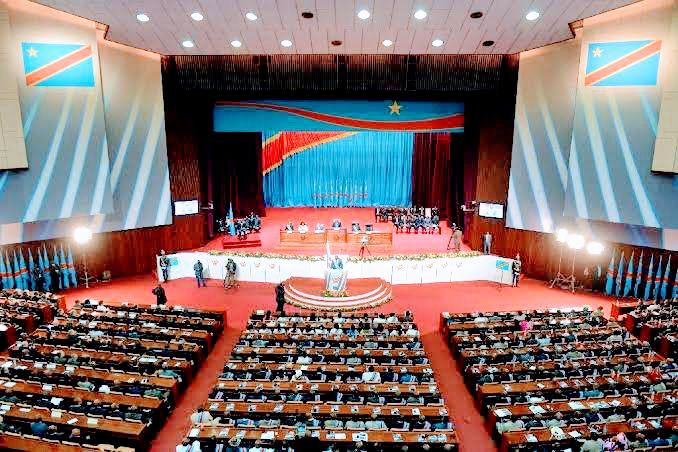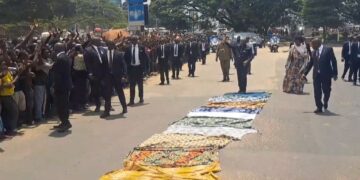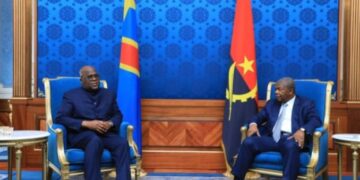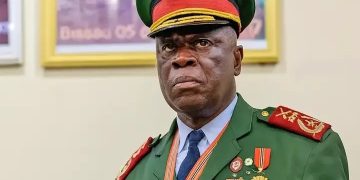
On May 30, the National Assembly’s general debate on the measure regarding the distribution of seats continued.This statute governing seat distribution applies to elections for the provincial, municipal, local, and urban legislatures.
The FCC deputies were not present for the discussion on Tuesday. The latter boycotted the meeting in protest at “an erratic, dishonest electoral process funded by the Tshisekedi regime.”
74 deputies signed up to speak in total.
The majority of elected politicians said that their provinces had lost seats during this debate because of the imbalance of seats among electoral districts.
The National Assembly’s President, Christophe Mboso, asserts that the quorum having been attained, this absence will not be able to prevent the passage of the measure.
The FCC deputies allege that the power structure is to blame for all the effects that this chaotic electoral process will have in a statement read at the People’s Palace.
François Nzekuye, the leader of the PPRD parliamentary group, has called attention to abnormalities in the CENI and Constitutional Court’s membership as examples of the “unreliable nature of the process” that might be used to plan electoral fraud in the nation.
He believes that in order to uphold the constitutional order and prevent the establishment of a consensual power, elections must be held in December of next year.
Gérard Mulumba, however, requested that the sit-in’s organizers put together a delegation of no more than ten persons to deliver any suggestions and observations regarding the election to the CENI headquarters.
The audit of the voter registration list, in the opinion of national deputy Bolengetenge, is a big farce. For successful elections, political actors must come to an agreement.
They arrived for a stroll. They took their kitty and put it in their pocket. They put their signatures on a document created by the CENI. They refer to it as a “audit.”





